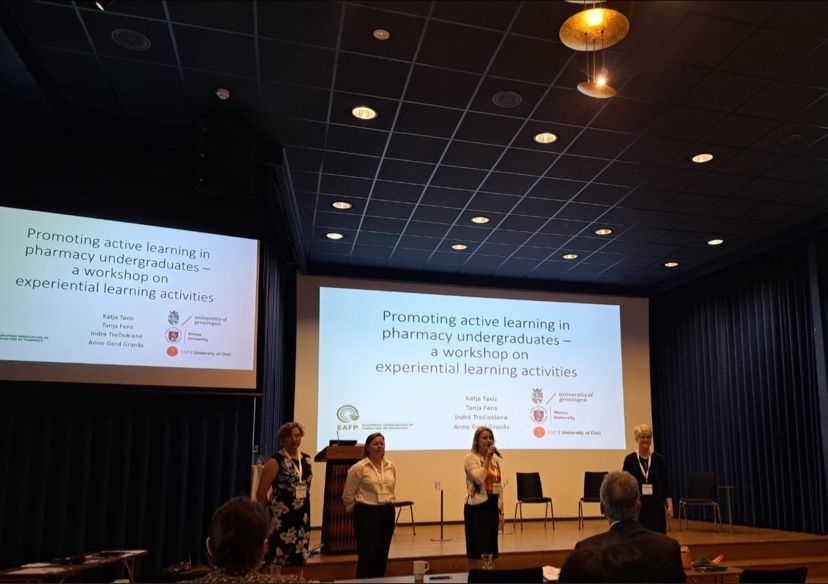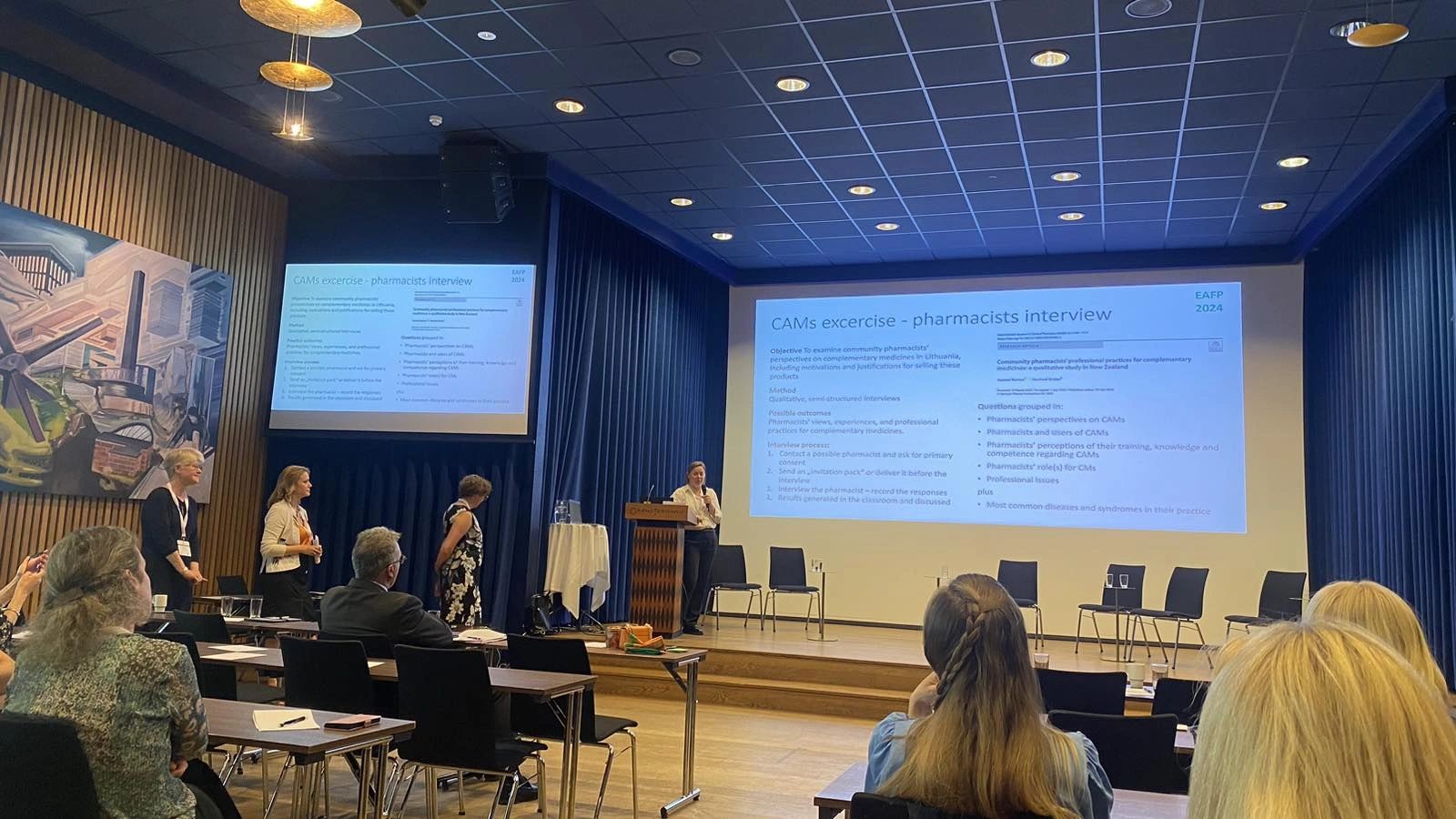Promoting Active Learning in Pharmacy Undergraduates: Experiential Learning Workshop at EAFP Conference
By Tanja Fens
On Wednesday, May 15th, 2024, the annual EAFP (European Association of Faculties of Pharmacy) conference hosted an insightful workshop titled "Promoting Active Learning in Pharmacy Undergraduates - A Workshop on Experiential Learning Activities." This workshop was led by the international Pharmacy Game colleagues Katja Taxis (University of Groningen, the Netherlands), Tanja Fens (University of Groningen, the Netherlands), Indrė Trečiokienė (Vilnius University, Lithuania), and Anne Gerd Granås (University of Oslo, Norway).

Introduction to Experiential Learning in Pharmacy
The workshop focused on innovative strategies to incorporate experiential learning into pharmacy education, aiming to engage students more deeply in their learning process. The facilitators provided practical examples and guided participants in designing their own experiential learning activities tailored to various educational contexts.
Examples of Experiential Learning Activities
Examples form the 3 universities were presented to the participants. "Take it Like a Patient" is an exercise, where pharmacy students in Groningen experience pharmacy treatment from a patient's perspective, fostering empathy and a better understanding of the patient’s challenges with medication adherence, shared Prof. Taxis. Furtheromore, Prof. Granås talked about how pharmacy students in Oslo simulate the daily life of a patient managing a complex medication regimen, using various forms of medication like tablets, creams, and eyedrops, "A Week as a Patient – Tablets, Creams, and Eyedrops". This activity provided a hands-on understanding of patient adherence and the practical challenges involved. Finally, Prof. Trečiokienė informed about the"CAMs Exercise – Pharmacists Interview" at Vilnius University. This activity involves students interview patients about their use of Complementary and Alternative Medicines (CAMs), enhancing their communication skills and understanding of diverse patient perspectives.

Group Activity: Designing Experiential Learning Activities
In the second half of the workshop, participants put their hands on designing their own experiential learning activity tailored to a specific educational context, and pitch their ideas in a two-minute presentation. The following educational contexts were considered:
Enhancing Student Engagement - In this scenario, students collaboratively set learning goals during a lecture, using the "fishbowl" strategy to promote active discussion on environmental aspects of patient care in community pharmacy settings.
Interprofessional Collaboration - This activity aimed to improve pharmacy students’ competence in working with other healthcare professionals. The setting involved a student-led clinic, in collaboration with a school of dentistry, where students could practice interprofessional teamwork.
Lifestyle Interventions in Community Pharmacies - To strengthen students' skills in advising patients on lifestyle changes related to conditions like cardiovascular disease or diabetes, this activity focused on role-playing patient interactions in a community pharmacy setting, promoting public health and disease prevention.
E-Health Intervention to Improve Adherence - Students collaborated with nursing students and healthcare professionals to explore eHealth technologies for managing complex medication regimes. The focus was on improving patient adherence through personalized care apps and digital health solutions.
Collaborative Discussion and Wrap-Up
The workshop concluded with each group presenting their experiential learning activity, followed by a vote for the best pitch. Participants from various European universities contributed their perspectives, enriching the discussion and sharing best practices for incorporating experiential learning into pharmacy education.
This workshop provided invaluable insights into how pharmacy educators can use experiential learning to enhance student engagement, collaboration, and competence in real-world pharmacy practice.